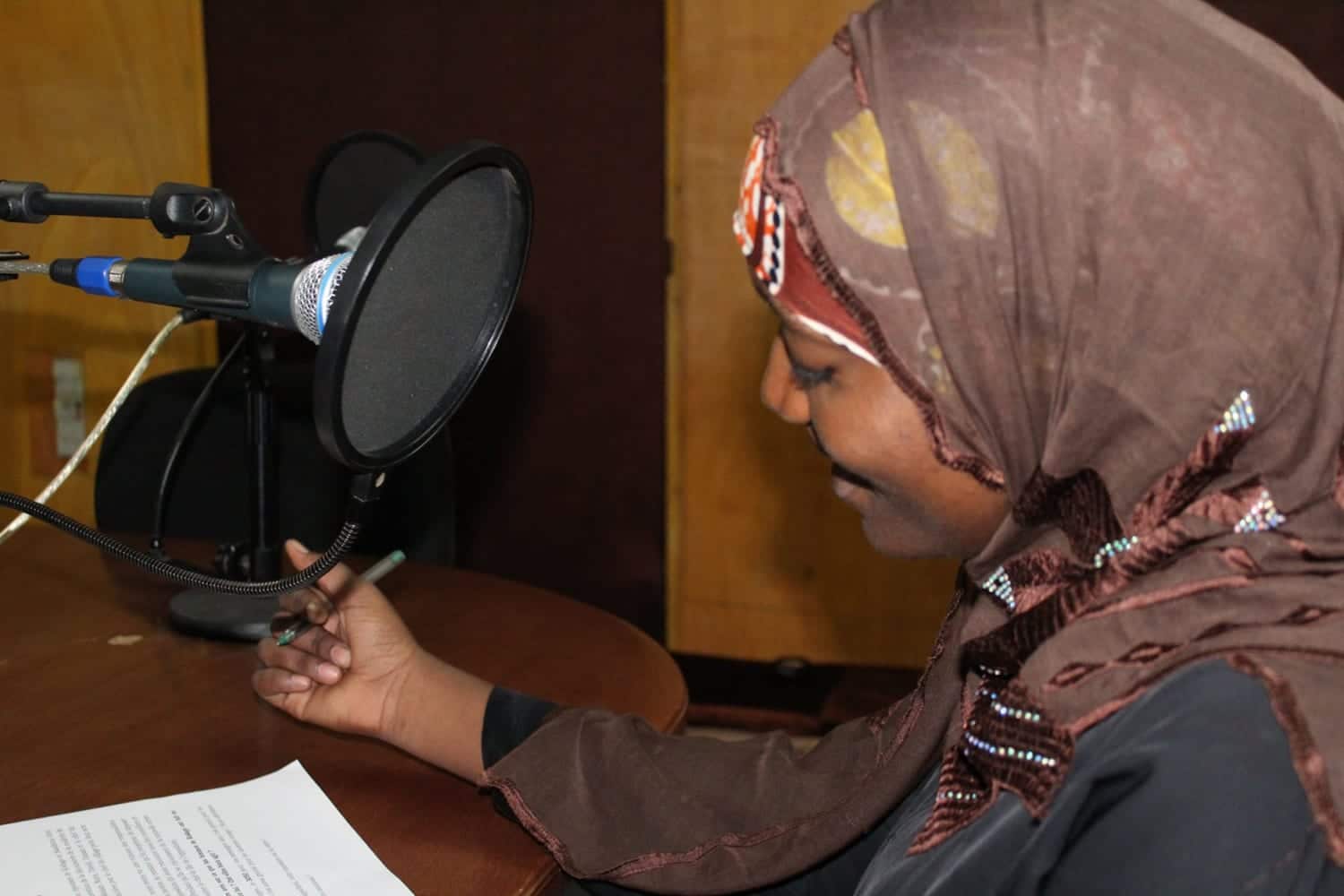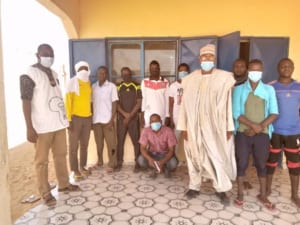

Community Leaders Bring their “Children” Back Home
How traditional leaders in Niger's Diffa region encouraged six extremist group leaders to defect
A Project of —
Voices for Peace (V4P)

Voices for Peace Success Story
In February 2020, six extremist leaders in Niger were motivated by local Chefs de Canton (traditional leaders) to desert their extremist camps and surrender themselves to local authorities, thanks in large part to the EAI Voices for Peace (V4P) program’s messages of peace, forgiveness, and stability via radio and caravan.

This collective defection is remarkable not only for the number of defectors, but also for the seniority of their profiles, all being “Emirs,” a title given to persons with leading positions within the extremist groups. In addition, these defections came out of two different camps at once, the Shekaou and Maman Nour factions. EAI, through V4P, was instrumental in creating the conditions for their defection.
The defectors were inspired by messages from two Chefs de Canton from the Diffa region of Niger during a V4P-sponsored caravan that visited 14 villages. The leaders encouraged residents to share their experiences of discrimination and how it could cause suffering in certain groups of people, even exacerbating the problem of violent extremism. The leaders also stressed that a peaceful process is in place for jihadist defectors who wished to reintegrate into society.
The inspiration for this caravan traces back to July 2019 when both leaders participated in a V4P regional summit in Cameroon about the marginalization of the Kanuri and Boudouma populations. They took that experience home and advocated for behavior change in their own communities, based on the way those vulnerable populations are treated.
While the six extremist leaders did not personally attend the caravan, its messages, especially the promise of fair treatment in case they decided to turn their backs on the extremists, had reached them via family and friends. This mechanism of transmission was facilitated through a broadcasting campaign by V4P radio partners on the caravan that included other topics linked to violent extremism. These messages allowed families to discuss the problems with violent extremism more openly and reflect on how to combat it in their homes or among close friends, further contributing to the quick spread of the messages.
It was thanks to the messages conveyed by the chefs de canton over the radio that we four came back.
— Group of ex-Boko Haram fighters in a reintegration camp in Goudoumaria, Niger